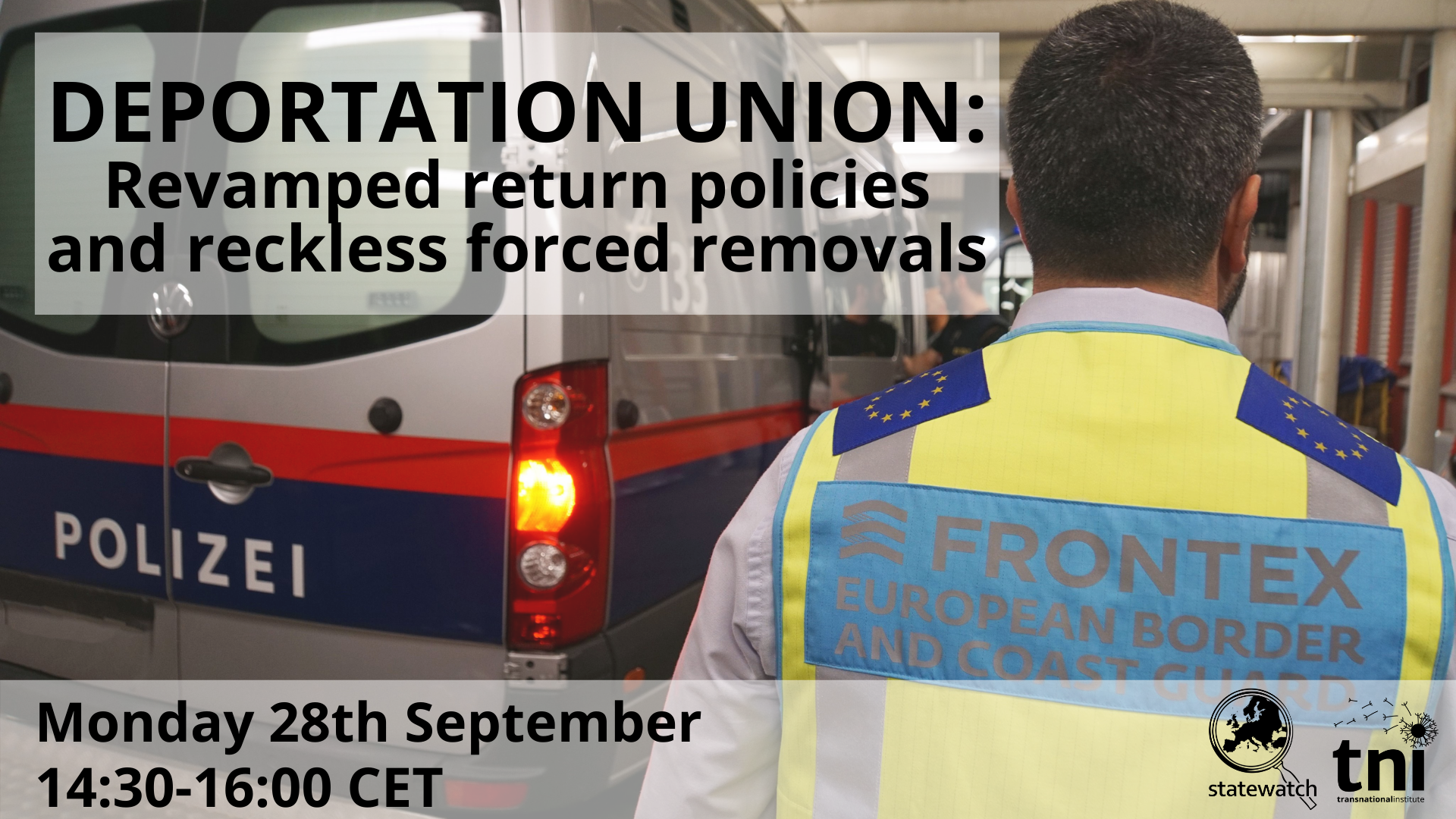Report launch: Automated suspicion: The EU’s new travel surveillance initiatives
Topic
Country/Region
13 July 2020
Normal people are increasingly being treated as suspects when they travel to the EU. What are the risks for civil liberties?
Support our work: become a Friend of Statewatch from as little as £1/€1 per month.
On Monday 13 July 2020 Statewatch hosted our first webinar! It was the formal launch of a report looking at how the EU is using new technologies to screen, profile and risk-assess travellers to the Schengen area, and the risks this poses to civil liberties and fundamental rights.
By developing ‘interoperable’ biometric databases, introducing untested profiling tools, and using new ‘pre-crime’ watchlists, people visiting the EU from all over the world are being placed under a veil of suspicion in the name of enhancing security.
We were joined by excellent speakers from Foxglove, a UK digital rights organisation, and Gesellschaft für Freiheitsrechte (Civil Rights Association) from Germany, both of whom are involved in legal challenges against automated profiling tools already being used on visa applicants and travellers.
If you missed the event, or want to watch the presentations and Q&A again, you can use the video above, or find it on our Vimeo page, here.
Our work is only possible with your support.
Become a Friend of Statewatch from as little as £1/€1 per month.
Previous article
Deportation Union: revamped return policies and reckless forced removals
Next article
Spotted an error? If you've spotted a problem with this page, just click once to let us know.

